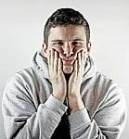 scope of drugs, alcohol, or the like which could radically impair or kill me. My reading tells me that I am addicted because I have other actions that I do almost compulsively to avoid pain or to restore happiness.
scope of drugs, alcohol, or the like which could radically impair or kill me. My reading tells me that I am addicted because I have other actions that I do almost compulsively to avoid pain or to restore happiness.Most contemporary resources like psychologytoday.com define addiction thusly: “Addiction is a condition that results when a person ingests a substance (alcohol, cocaine, nicotine) or engages in an activity (gambling) that can be pleasurable but the continued use of which becomes compulsive and interferes with ordinary life responsibilities. That definition takes the responsibility for addiction away from the individual and puts it on the drug or the pleasurable activity that ensnares us so readily. True, we must first make the decision to try the substance or activity. But its the drug or activity that addicts us.
Why do we seek these pleasurable things?
Ex-addict, William, in his blog, says, “At the root of all addiction is pain.” He goes on, “It is humans who get addicted out of fear of the darkness within, and not drugs that are addictive.”
Dr. Richard Carlson says in “You Can Be Happy, No Matter What” that “a habit is a thought that you have accepted as truth.”
He goes on to say that “Happiness is a positive feeling that exists inside you.” When we lose touch with that positive feeling, we knowingly or unknowingly attempt to get it back. “When you don’t understand the dynamics of your own mind, you innocently attempt to get your positive feeling back through outside sources – which can be the beginning of bad habits.” Carlson uses the words “addictions” and “habits” interchangeably.
When we accept our thoughts as truth and our thoughts are negative, then the truth can become something very frightening or dark as William described it in his blog.
Carlson says, “Some popular substitutes for a contented state of mind are alcohol, drugs, cigarettes, food, exercise, gambling, sex, and work. A few of the more subtle forms include arguing, proving yourself, and seeking approval.”
So by this very-common-sense definition of addiction, it becomes apparent that many of us have allowed ourselves to become addicts to something in an attempt to restore happiness. In my case, I am addicted to fast food and work.
For your convenience, I've published a partial list of addictions whereby you can decide for yourself if some of your “habits” might in fact be addictions. Click here for the list. Oh, after reviewing the list, I'll have to add chocolate as one of my addictions.
It appears that when we lose our feelings of happiness, which typically happens when we allow ourselves to ruminate more and more on negative things, we begin to search for things to restore that lost happiness or to block the fear or loss. The things that make us feel happy, even for a short period of time, are the things we tend to do again and again until the quest for happiness becomes a habit or addiction.
Some of these habits are simply annoying. Others are disruptive of a productive lifestyle. Others are destructive to ourselves or others; and others have the capacity to become criminal.
Think about this. Instead of masking the unhappiness with a substitute substance or activity, wouldn’t it be better if we could stop the negative thinking that is stealing our unhappiness? Or wouldn't it be nice to deal with the thoughts of the pleasure that precede the addictive act before it's repeated?
That's exactly what we show you how to do in “Finding Personal Peace.” We show you how to restore “peace” or “happiness” by appropriately handing the negative thinking that destroys your happiness.
Did you find yourself on the list? Are there habits/addictions from which you would like to be free? That's entirely possible for you. Take a look at Finding Personal Peace.
God bless,
2 comments: